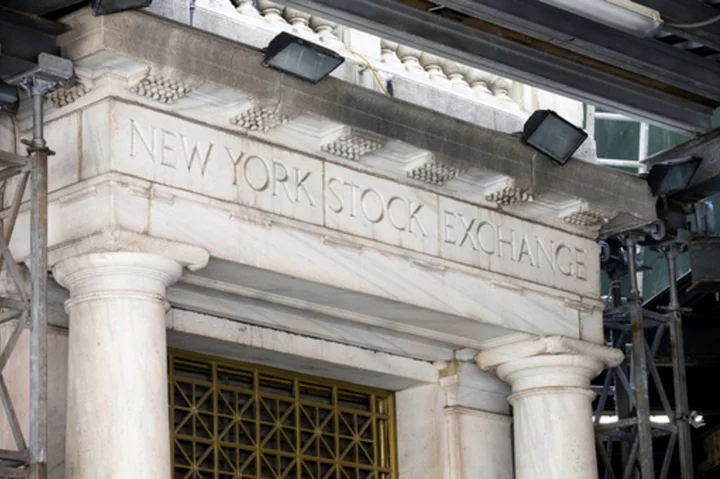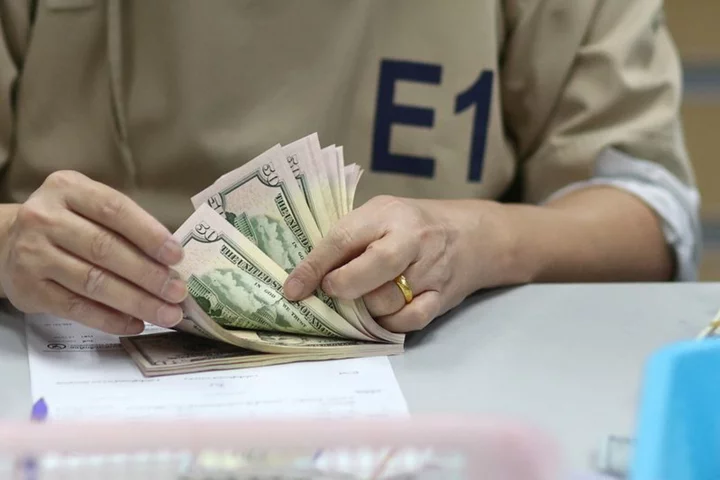Wall Street was pointed toward small gains before the bell Thursday as markets recalibrate following recent big swings.
Futures for the S&P 500 and the Dow Jones Industrial Average each edged 0.1% higher before markets opened.
A dearth of fresh economic data and few high-profile earnings reports have left the markets mostly quiet this week.
Cereal maker WK Kellogg and The Walt Disney Co. each climbed more than 4% in off-hours trading after reporting bigger profits than expected for the most recent quarter. Golf equipment maker Topgolf Callaway skidded 21.7% after it missed sales targets and lowered its forecast.
Tapestry rose nearly 2% after rhe maker of high-end shoes and handbags beat Wall Street's profit forecasts.
Coming later Thursday is the government's weekly unemployment benefits report, one of the few notable economic data releases this week.
Elsewhere, in Europe at midday Germany's DAX and Britain's FTSE each edged 0.5% higher, while the CAC 40 in Paris advanced 0.8%.
China reported that its consumer prices fell 0.2% from a year earlier in October while factory-gate prices declined 2.6%, suggesting demand remains slack as the world's second-largest economy struggles to recover from the economic disruptions of the pandemic.
Falling prices have raised worries that China may fall into a bout of deflation, or chronically lower prices, but some analysts say much of the weakness recently is due to a decline in the cost of pork, a staple item for Chinese.
“What China has right now, is a low rate of underlying inflation, which reflects the fact that domestic demand is fairly weak,” Robert Carnell of ING Economics said in a report. “If you want to use any term, ‘disinflation’ would be my preference, but what we are seeing today is mainly the result of a supply excess, rather than a collapse in demand,” he said.
Hong Kong's Hang Seng lost 0.3% to 17,511.29 and the Shanghai Composite index edged less than 1 point higher, to 3,053.28.
In Tokyo, the Nikkei 225 index jumped 1.5% to 32,646.46 after Prime Minister Fumio Kishida told local reporters he had decided against calling an election before the end of the year.
South Korea's Kospi added 0.2% to 2,427.08, while in Australia, the S&P/ASX 200 gained 0.3% to 7,014.90. In Bangkok, the SET lost 0.5%.
The 10-year Treasury yield was at 4.54% early Thursday, down from 4.57% late Tuesday.
A swift rise in the 10-year yield beginning in the summer dragged the S&P 500 down by more than 10% from its peak for the year. The 10-year yield briefly topped 5% to reach its highest level since 2007, as it tracked the Federal Reserve’s main interest rate, which is above 5.25% and at its highest level since 2001.
The Fed has jacked up rates in hopes of slowing the economy and hurting investment prices enough to put downward pressure on inflation and get it back to its 2% goal.
Last week, investors took comments from Fed Chair Jerome Powell to indicate the central bank’s hikes to interest rates may be done. A recent sharp drop in oil prices has relieved some inflationary pressure, raising the likelihood the Fed might hold rates steady instead of raising them further.
U.S. benchmark crude added 61 cents to $75.93 per barrel Thursday in electronic trading on the New York Mercantile Exchange. Brent crude, the international standard, picked up 64 cents to $80.18 per barrel.
In currency dealings, the U.S. dollar rose to 151.07 Japanese yen from 150.98 yen. The euro weakened to $1.0691 from $1.0711.
On Wednesday, the S&P 500 edged up 0.1%, barely managing to extend the index’s winning streak to eight days. That ties its longest such winning streak since a nine-day run 19 years ago. The Dow slipped 0.1% and the Nasdaq composite rose 0.1%.









